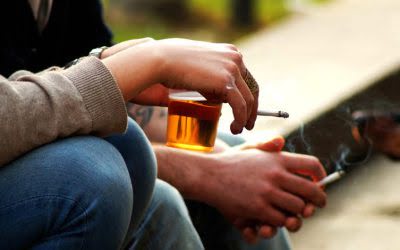Content
It is not trivial to delineate the exact category of harmful substance use for which a label such as addiction is warranted (See Box 1). Challenges to diagnostic categorization are not unique to addiction, however. Throughout clinical medicine, diagnostic cut-offs are set by consensus, commonly based on an evolving understanding of thresholds above which people tend to benefit from available interventions. Because assessing benefits in large patient groups over time is difficult, diagnostic thresholds are always subject to debate and adjustments. It can be debated whether diagnostic thresholds “merely” capture the extreme of a single underlying population, or actually identify a subpopulation that is at some level distinct.
When was addiction classified as a disease in the DSM?
In 1980, the DSM-III introduced the categories of “abuse” and “dependence,” requiring pathological patterns of use or negative consequences of use for a diagnosis of abuse and tolerance or withdrawal for a diagnosis of dependence (plus one of the abuse criteria in the case of alcohol or cannabis dependence).
Once the addicted person no longer has access to the substance, they can stop. A disease is defined as a health condition affecting the homeostasis of a human being. Diseases can be caused by pathogens such as infectious bacteria or viruses. Diseases may also emerge due to internal disruptions affecting one or more body systems, such as heart disease affecting the cardiovascular system or diabetes affecting blood glucose levels. Reasons for most chronic diseases (or diseases lasting longer than six months) involve lifestyle choices and/or genetics.
What Are the Risk Factors of Developing Dependency?
Ethos Structured Sober Living is an all male community in recovery located in the heart of West Los Angeles. Our primary purpose is to foster long-term sobriety through the cultivation of accountability, camaraderie, & character development. If there are any concerns about content we have published, please reach out to us at Any of these resources is a good place to start when looking for assistance with addiction.

In dismissing the relevance of genetic risk for addiction, Hall writes that “a large number of alleles are involved in the genetic susceptibility to addiction and individually these alleles might very weakly predict a risk of addiction”. He goes on to conclude that “generally, genetic prediction of the risk of disease (even with whole-genome sequencing data) is unlikely to be informative for most people who have a so-called average risk of developing an addiction disorder” [7]. It is true that a large number of risk alleles are involved, and that the explanatory power of currently available polygenic risk scores for addictive disorders Top 5 Questions to Ask Yourself When Choosing Sober House lags behind those for e.g., schizophrenia or major depression [47, 48]. The only implication of this, however, is that low average effect sizes of risk alleles in addiction necessitate larger study samples to construct polygenic scores that account for a large proportion of the known heritability. In addition, members of the public, who are likely to view addiction as a moral failing, are less likely to support policies that help drug addicts with recovery. For example, nearly half of people in a survey indicated that they did not feel that individuals with addictions should have the same health insurance benefits as the general public.
Disease Model of Addiction
In residential treatment, each day is structured with a healthy routine and multiple evidence-based therapies, along with medical support. The first step of inpatient rehabilitation is generally the detox process. Whether you see addiction as being a choice, disease, or both, it’s crucial to address the problem at hand nonetheless. There are actionable steps a recovering individual can take to conquer addiction and find fulfillment in a long-lasting sober life. When you stop, your brain cells can heal, you can make better habits, and you can improve your life.
